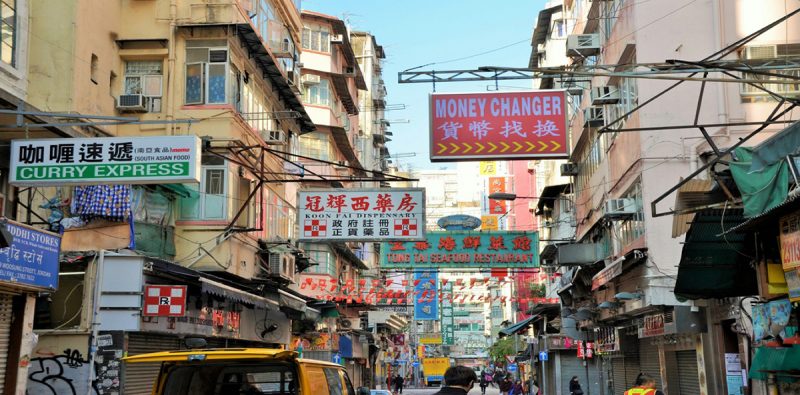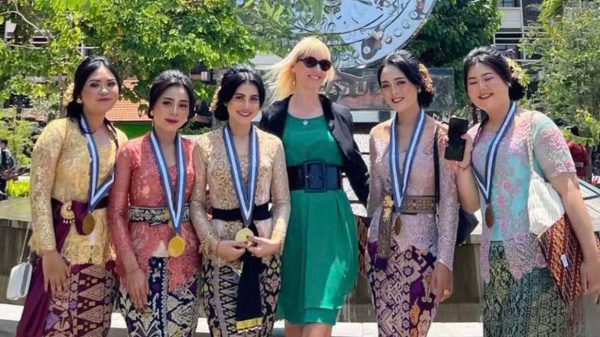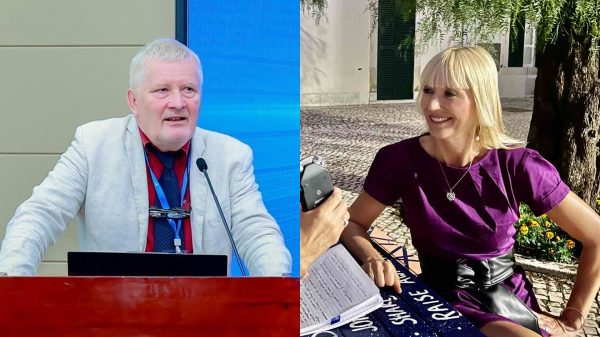
26.03.24
Language and Identity — Multilingualism in Hong Kong
By Ziran Zheng
The diverse linguistic landscape of Hong Kong is intricately woven into its historical and cultural tapestry. Hong Kong was ceded to Britain three times between 1842 and 1898 by the Government of the Qing dynasty (the last imperial government in Chinese history) due to its defeat in wars. This period culminated in the territory’s return to China in 1997, by the 1984 Sino-British Joint Declaration. On July 1, 1997, Hong Kong officially became the Hong Kong Special Administrative Region under Chinese sovereignty, marking what is commonly called the “Handover of Hong Kong“. This historical journey has significantly shaped Hong Kong’s multilingual environment, reflecting its complex and dynamic cultural heritage.
Hong Kong’s rich and enduring multilingual heritage has played a significant role in shaping its language policies. Presently, Hong Kong’s language policy emphasizes Biliteracy and Trilingualism. Biliteracy encompasses Chinese and English, while trilingualism refers to Cantonese, English, and Mandarin (Putonghua). With a colonial history spanning over a century, English is prominent in Hong Kong’s linguistic landscape and is often used in formal contexts such as government documentation and legal proceedings. In the context of biliteracy and trilingualism, Chinese encompasses both Mandarin (Putonghua), the official language of mainland China, and Cantonese, a regional language originating from Guangdong province (a province located in southern China and neighboring Hong Kong), which gained prevalence through mass migration to Hong Kong in the 1850s. According to the 2021 Snapshot of the Hong Kong Population released by the Census and Statistics Department (2023), 90.6% of individuals consider Cantonese as their primary spoken language. Consequently, Cantonese dominates the workplace and daily life in Hong Kong. However, the prevalence of Cantonese proficiency also presents challenges for those who need to be fluent in it, affecting their participation and integration within Hong Kong society.
The statistics from the Immigration Department of HK (2022) regarding student visas reveal a significant influx of people coming to Hong Kong to study in 2022, surpassing 46,000. Additionally, the number of mainland talents admitted stands at 11,768. Furthermore, data from the 2021 Snapshot of the Hong Kong Population indicates that the ethnic minority (mainly from Southeast Asia and South Asia) population in Hong Kong has exceeded 600,000. These escalating figures yearly underscore the growing presence and proportion of non-local people in Hong Kong, reflecting the city’s evolution into a diversified international hub. This influx of diversity enriches Hong Kong’s cultural fabric and societal dynamics and injects fresh vitality and opportunities into its economy and development trajectory. However, alongside these benefits, the rise in the non-local population presents challenges, including heightened competition for housing and employment and issues related to cultural and social identity. Consequently, Hong Kong should proactively devise more inclusive and adaptive policies and measures to effectively manage and foster local and non-local people’s harmonious coexistence and development.
 Above: Multilingual signboards on the streets
Above: Multilingual signboards on the streets
As a native of mainland China, my research focus on Hong Kong is deeply rooted in my background, as I grew up in Guangdong Province. In my childhood, I frequently visited Hong Kong. My parents, who learned Cantonese for professional reasons, facilitated our family’s trips to Hong Kong, mitigating some language barriers we might encounter. Through interactions with friends and relatives who relocated to Hong Kong for work or education, I became acutely aware of their challenges due to their limited proficiency in Cantonese. Instances of social exclusion at school and difficulties securing employment due to language barriers were common experiences. These challenges were exacerbated by the heightened discrimination against mainlanders, particularly during the COVID-19. In response to these observations, I started to learn Cantonese. Subsequent visits to Hong Kong for study and travel exposed me to personal experiences of the differential treatment encountered by mainlanders, evident through identifying my unskilled Cantonese accent. Motivated by these experiences, I have chosen to delve deeper into the issues faced by non-local residents in Hong Kong. Pursuing further studies will allow me to explore the intricacies of these challenges and advocate for more inclusive practices within the community.
My research focuses on the intersection of Hong Kong’s language policy and the identity of non-local people, aiming to delve into the historical context of the language policy’s development and the language challenges faced by non-local individuals residing in Hong Kong. I hope that my research will not only understand the impact of the language policy on social life and propose solutions from it but also help to enhance the understanding between different linguistic and cultural groups and gain insights into the challenges and opportunities of managing a multilingual society and cultural pluralism. Furthermore, this research will offer a unique opportunity to examine socio-political dynamics within a distinct context while contributing insights to the global discourse on language policy and cultural diversity in an increasingly interconnected world.
The multifaceted nature of multilingualism in Hong Kong is a testament to the city’s rich cultural heritage and dynamic societal fabric. This linguistic diversity enriches daily interactions and provides fertile ground for fostering communication, cooperation, and mutual understanding among its inhabitants. Multiple languages in Hong Kong facilitate language acquisition and enhance individuals’ intercultural communication skills. While specific challenges and problems remain, moving forward, nurturing and preserving this vibrant multilingual landscape will continue to be essential in sustaining Hong Kong’s status as a global metropolis where diverse voices are celebrated and valued.
Reference
Census Statics Department. (2023, February). Snapshot of the Hong Kong Population. https://www.censtatd.gov.hk/en/data/stat_report/product/B1120114/att/B11201142021XXXXB0100.pdf
Immigration Department. (2022, December). Annual Report. Immigration Department of Hong Kong. https://www.immd.gov.hk/publications/a_report_2022/en/index.html

